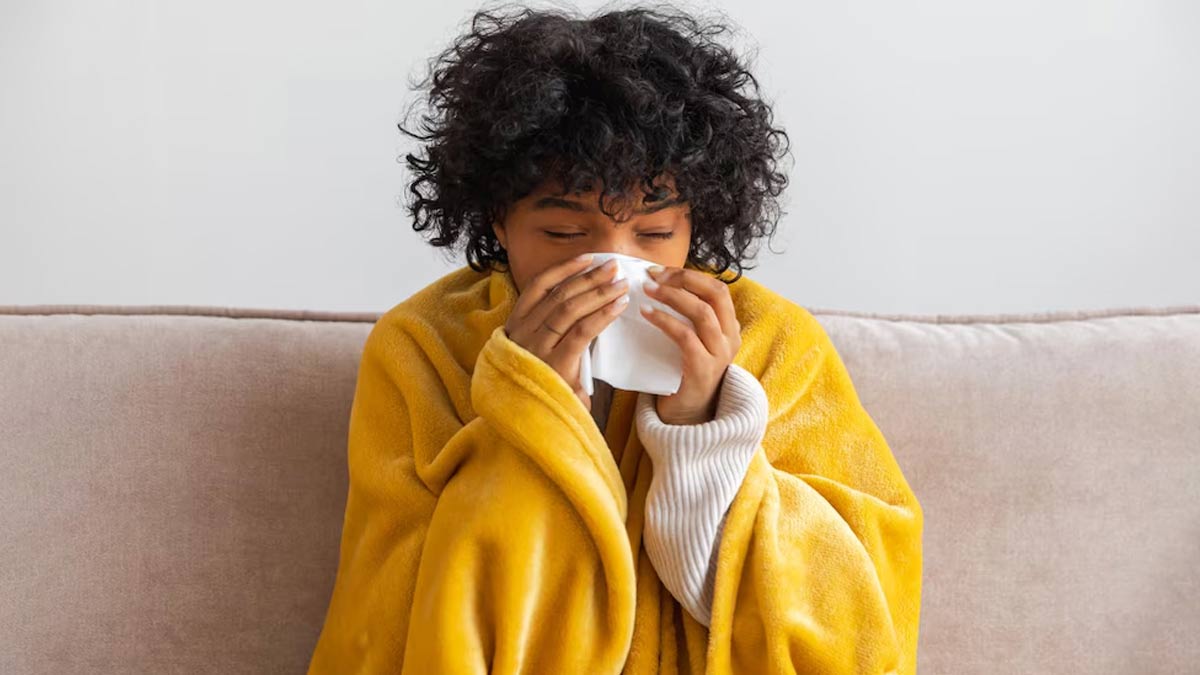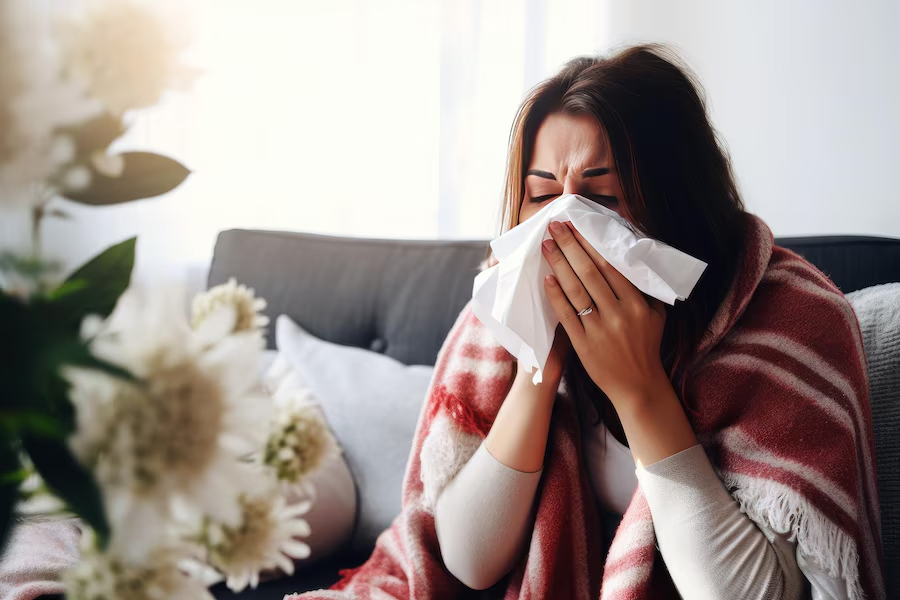
Viral fever infections, especially seasonal flu, can be a major health problem as they can cause discomfort, disruptions, and even severe complications. As viruses like influenza tend to spread widely during certain times of the year, it's important to understand how to manage the symptoms and prevent transmission to stay healthy and reduce the impact of these infections. In this article, we list some practical tips on how to manage and prevent seasonal flu infections.
Table of Content:-
What Is Seasonal Flu

According to the World Health Organization (WHO), flu, also known as seasonal influenza, is a short-term respiratory illness triggered by influenza viruses. It is widespread across the globe, affecting people in various regions. Typically, individuals recuperate from the flu without requiring medical intervention.
Symptoms of flu include fever, cough, sore throat, body aches, fatigue, and sometimes vomiting and diarrhoea. While most people recover from flu without complications, it can lead to serious illness, hospitalisation, and even death, especially among high-risk groups, such as young children, elderly individuals, pregnant women, and those with underlying health conditions.
Also Read: Desi Ghee For Seasonal Flu: Here Are 5 Smart Ways To Use Ghee For Cold, Cough, And Fever
Tips to Manage Viral Fever Infections

Rest and Hydration
You should ensure that you get plenty of rest to help your body fight off the infection. Drink fluids such as water, herbal teas, and clear broth to stay hydrated and soothe a sore throat.
Fever Management
Over-the-counter medications can help reduce fever and alleviate body aches. Make sure to carefully follow dosage instructions and consult a healthcare professional if you have concerns.
Symptom Relief
Use over-the-counter remedies to relieve symptoms, such as cough, congestion, and sore throat. Nasal saline sprays or saline nasal rinses can help clear nasal passages and ease congestion.
Avoiding Spreading the Infection
Don't forget to cover your mouth and nose with a tissue or your elbow when coughing or sneezing to prevent the spread of germs. Wash your hands frequently with soap and water, especially after coughing, sneezing, or touching potentially contaminated surfaces.
Also Read: Throat Pain: How To Know If It's Viral Or A Bacterial Infection?
Tips for Preventing Seasonal Flu
Get Vaccinated
The annual flu vaccine is the most effective way to prevent seasonal flu and its complications. It's recommended for everyone aged six months and older, with rare exceptions.
Practice Good Hand Hygiene
You should wash your hands frequently with soap and water for at least 20 seconds, especially after coughing, sneezing, using the restroom, or touching potentially contaminated surfaces. According to Harvard Health Publishing, apply soap or cleanser generously, ensuring coverage on the palms, backs of hands, and wrists. Cleanse thoroughly, paying attention to fingertips, areas under nails, and spaces between fingers. Rinse hands and wrists under running water, then dry them completely.
Avoid Close Contact
You should try to keep your distance from people who are ill and exhibiting flu-like symptoms. Also, if you are sick, stay home from work, school, and social gatherings to prevent spreading the infection to others.
Keep Surfaces Clean
Apart from this, it is also important to regularly clean and disinfect frequently touched surfaces and objects, such as doorknobs, light switches, countertops, and electronic devices.
Boost Your Immune System
It is important to maintain a well-balanced diet, exercise frequently, control your stress, and get enough sleep to maintain a healthy lifestyle. These habits can help support your immune system and reduce your risk of infections.
[Disclaimer: This article contains information provided by an expert and is for informational purposes only. Hence, we advise you to consult your expert if you experience severe symptoms, such as difficulty breathing, persistent chest pain, confusion, or sudden dizziness.]
Also watch this video
Read Next
AstraZeneca Admits Covishield Jab Causes TTS; All About Thrombosis Thrombocytopenia Syndrome (TTS)
How we keep this article up to date:
We work with experts and keep a close eye on the latest in health and wellness. Whenever there is a new research or helpful information, we update our articles with accurate and useful advice.
Current Version